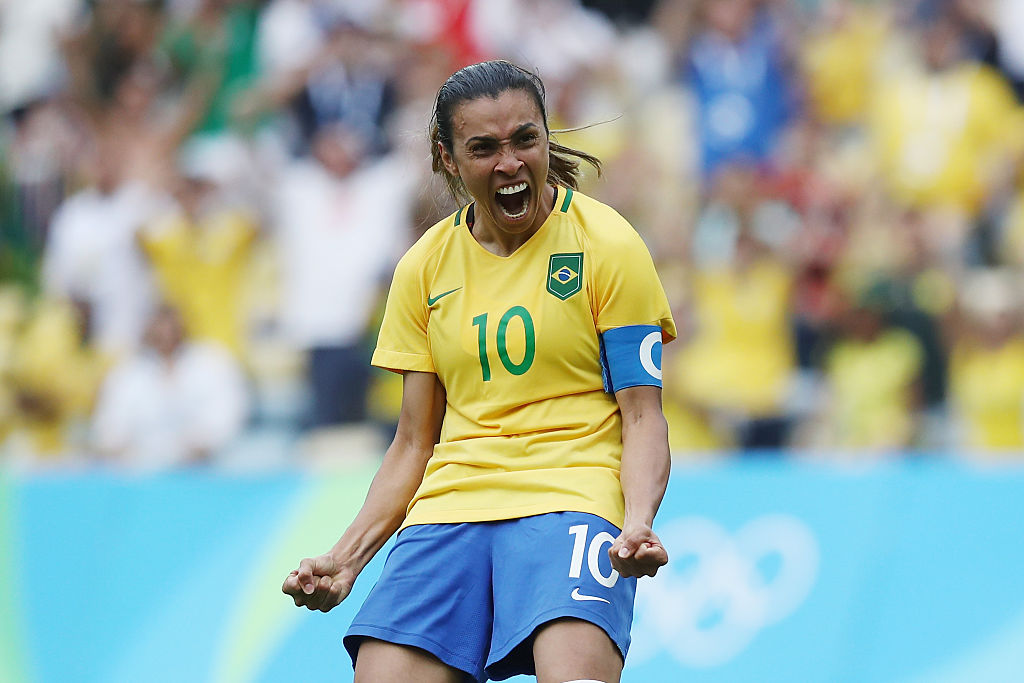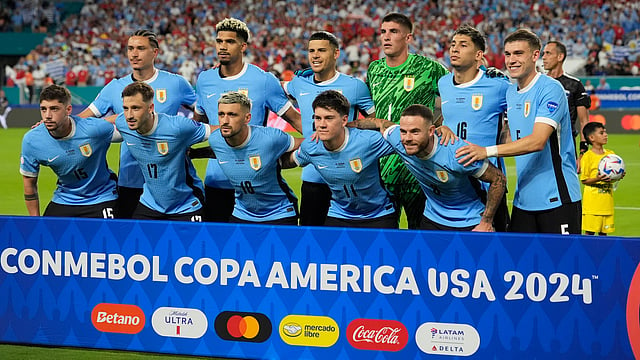
Analyzing the Impact of Marta's Retirement on Women's Football
On April 1, 2025, the football world bid farewell to one of its most iconic figures as Brazilian superstar Marta announced her retirement from international football. Widely regarded as one of the greatest female footballers of all time, Marta leaves behind a legacy that transcends statistics and accolades, embodying the spirit and evolution of women's football. With 17 World Cup goals to her name, she holds the record for the most goals scored in World Cup history, showcasing her extraordinary talent and longevity in the sport. This article delves into her illustrious career, her contributions on and off the pitch, and the implications of her departure on the future of women's football, particularly in Brazil.
/cdn.vox-cdn.com/uploads/chorus_asset/file/25418816/usa_today_23067496.jpg)
A Stellar Career
Marta Vieira da Silva, known simply as Marta, made her debut for the Brazilian national team at the tender age of 17. Over the next two decades, she would not only dominate the sport with her exceptional skills but also represent the Brazilian flag on the world's biggest stages, including five FIFA Women’s World Cups (2003, 2007, 2011, 2015, and 2019) and two Olympic Games (2004 and 2008).
Her record of 17 World Cup goals is a testament to her consistency and ability to perform under pressure. Marta's most memorable moments include her stunning performances in the 2007 World Cup, where she won the Golden Boot, and her emotional appearances at the Olympics, where she led Brazil to the finals both times but fell short of securing gold.
Advocacy Beyond the Pitch
Marta's influence extends far beyond her performance on the field. As a powerful advocate for gender equality in sports, she has used her platform to address critical issues such as pay disparity and the need for greater investment in women's football. In her own words, she stated, “If you want to be a professional athlete, you have to have the same opportunities as men.” This sentiment has resonated with countless young female footballers who look up to her not just as a player, but as a trailblazer for women's rights in sports.
Her advocacy has helped to elevate the visibility of women's football globally, fostering a generation of female athletes who feel empowered to pursue their dreams. Marta's legacy as an advocate is as significant as her achievements on the pitch, inspiring initiatives aimed at enhancing female participation in football worldwide.
The Future of Women’s Football in Brazil
With Marta's retirement, questions arise about the future of Brazilian women's football. The national team, often referred to as "Seleção," has historically relied on her leadership and experience. Her departure signifies a pivotal moment, one that opens the door for emerging talents to step into the limelight.
The Brazilian Football Confederation (CBF) has acknowledged the challenges ahead, stating, "Marta’s legacy will continue to inspire the next generation of players. We are committed to investing in women’s football to ensure that Brazil remains a competitive force on the world stage." In the wake of her retirement, it is essential for the CBF to nurture young talent and provide adequate resources for women's teams, both at the club and national levels.

Challenges and Opportunities
The path forward for women's football in Brazil is fraught with challenges. Despite growing popularity, the sport continues to face issues such as inadequate funding, limited media coverage, and a lack of professional opportunities for female players. However, there is also an undeniable momentum for change. The rise of domestic leagues, such as the Campeonato Brasileiro de Futebol Feminino, has provided a platform for young players to showcase their talents.
Statistics indicate that viewership for women's football is on the rise globally. The 2023 FIFA Women's World Cup saw record-breaking attendance and viewership, with over 1.5 million fans attending matches across Australia and New Zealand. Such trends signal a burgeoning interest in women's sports, suggesting that now is the time for Brazil to capitalize on this enthusiasm to develop its women's football.
Voices from the Football Community
Marta's impact on her teammates and the broader football community cannot be overstated. Many current and former players have shared their insights on her legacy. Brazilian goalkeeper Barbara, who has played alongside Marta, remarked, "Marta is not just a player; she is a symbol of hope for all of us. She has paved the way, and we must continue her work to elevate women's football."
Coaches and analysts have also weighed in. Pia Sundhage, the former coach of the Brazilian national team, expressed, "Marta has been an incredible force in women's football. Her retirement is a significant loss, but it also gives us an opportunity to build a new team around fresh talent."

Statistical Reflection
To underscore Marta's contributions to the game, consider the following statistics from her career:
- 17 World Cup goals: An all-time record that highlights her ability to perform on the biggest stage.
- 5 World Cups: Only a handful of players have had the longevity to participate in five editions of the tournament.
- 2 Olympic silver medals: A testament to her consistency and leadership within the national squad.
In addition to her individual accolades, Marta has inspired Brazil to notable victories, including winning the 2007 Copa América Femenina and securing a place as a finalist in the 2019 FIFA Women's World Cup.
Conclusion
As the football community reflects on Marta's remarkable career, her retirement marks not only the end of an era but also the beginning of a critical juncture for women's football in Brazil. Her legacy as a player and an advocate for women's rights will undoubtedly influence future generations of athletes.
The challenge lies ahead for Brazil to foster new talent and ensure that Marta's contributions are not forgotten but rather serve as a foundation for continued growth and excellence in women's football. As the sport evolves, the message is clear: Marta's impact will resonate far beyond the pitch, inspiring young female footballers to dream big and break barriers in a sport that she has helped to shape.
With a future full of potential and opportunity, the next chapter of women's football in Brazil is poised to take flight, building on the legacy of a true pioneer.
For more insights on Marta's impressive career and the evolving landscape of women's football, check out articles on Goal and BBC Sport.